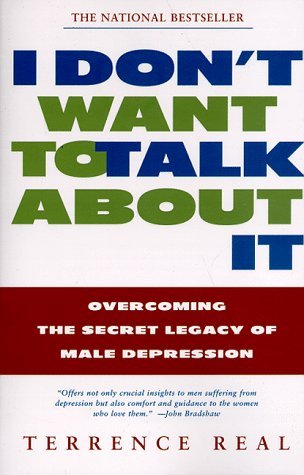More on this book
Community
Kindle Notes & Highlights
Read between
March 16 - May 17, 2024
The son wishes to remember what the father wishes to forget.
between 60 and 80 percent of people with depression never get help.
It is the collision of inherited vulnerability with psychological injury that produces depression.
Healthy self-esteem presupposes that all men and women are created equal; that one’s inherent worth can be neither greater nor lesser than another’s.
We can still recognize our gifts and limitations, as well as those of others. But our basic sense of self as valuable and important neither rises nor falls based on external attributes.
depression was a form of internalized violence—of “aggression turned against the self,”
The only real cure for covert depression is overt depression.
The relaxation of self-boundaries lies at the core of intoxication with drugs like alcohol,
violence operated for Jimmy as a magic elixir transforming his shame into grandiosity,
Helpless feelings vanish with the illusion of inordinate power.
Addictions do to shame what saltwater does to thirst.
Overt depression, prevalent in women, can be viewed as internalized oppression, as the psychological experience of victimization. Covert depression, prevalent in men, can be viewed as internalized disconnection—the experience of victimization warded off through grandiosity,
If early maternal separation produces upset in monkeys, opioids, like morphine, relieve it. In fact, no substance has been shown to be more effective in alleviating such distress.
Monkeys that had been isolated in youth display increased sensitivity to amphetamines and opioids,
Their developing sense of their own masculinity is not, as in most other forms of identity development, a steady movement toward something valued so much as a repulsion from something devalued.
The subtext message is, “engage in ‘feminine’ values and activities and risk a similar devaluation yourself.”
The paradox for the boys is that the only way to connect with their father is to echo his disconnection. Conversely, being too much like Mother threatens further disengagement or perhaps, even active reprisal.
Boys without strong “father figures” to help them ward off their mothers were in grave peril of either succumbing to the mother’s feminizing influence,
When we focus on the highly speculative psychological effects of fatherlessness we draw away from concrete political concerns, like the role of increased poverty.
Those boys who do have fathers are happiest and most well adjusted with warm, loving fathers, fathers who score high in precisely “feminine” qualities.
men are harsher to their children than women, they are not necessarily the family’s main disciplinarian.
The typical American father spends on average only eleven minutes a day with his children.
When a boy rejects his mother’s authority because she is “only a woman,” when a mother shrinks from the full exercise of her parental rights and responsibilities, both play out the values of patriarchy.


